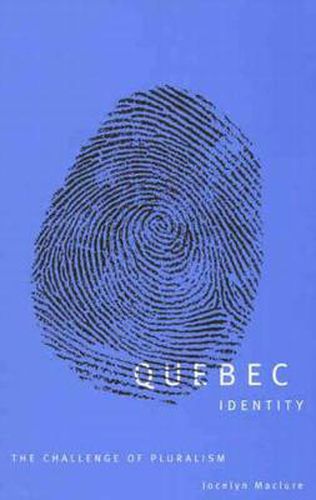Readings Newsletter
Become a Readings Member to make your shopping experience even easier.
Sign in or sign up for free!
You’re not far away from qualifying for FREE standard shipping within Australia
You’ve qualified for FREE standard shipping within Australia
The cart is loading…






In Quebec Identity Jocelyn Maclure provides a critical reflection on the ways in which Quebec’s identity has been articulated since the 1960s’ Quiet Revolution. He shows how neither the melancholic nationalism of the Montreal school, Hubert Aquin, Pierre Vallires, Fernand Dumont and their followers, nor the individualist antinationalism of Pierre Trudeau and his followers provide identity stories and political projects adequate for contemporary Quebec. In articulating an alternative narrative Maclure reframes the debate, detaching the question of Quebec’s identity from the question of sovereignty versus federalism and linking it closely to Quebec’s cultural diversity and to the consolidation of its democratic sphere. In so doing, he rethinks the conditions of authenticity, leaves space for First Nations’ self-determination and takes account of globalization. This edition has been expanded for English-Canadians with additional references as well as a glossary of names, institutions, and concepts.
$9.00 standard shipping within Australia
FREE standard shipping within Australia for orders over $100.00
Express & International shipping calculated at checkout
In Quebec Identity Jocelyn Maclure provides a critical reflection on the ways in which Quebec’s identity has been articulated since the 1960s’ Quiet Revolution. He shows how neither the melancholic nationalism of the Montreal school, Hubert Aquin, Pierre Vallires, Fernand Dumont and their followers, nor the individualist antinationalism of Pierre Trudeau and his followers provide identity stories and political projects adequate for contemporary Quebec. In articulating an alternative narrative Maclure reframes the debate, detaching the question of Quebec’s identity from the question of sovereignty versus federalism and linking it closely to Quebec’s cultural diversity and to the consolidation of its democratic sphere. In so doing, he rethinks the conditions of authenticity, leaves space for First Nations’ self-determination and takes account of globalization. This edition has been expanded for English-Canadians with additional references as well as a glossary of names, institutions, and concepts.